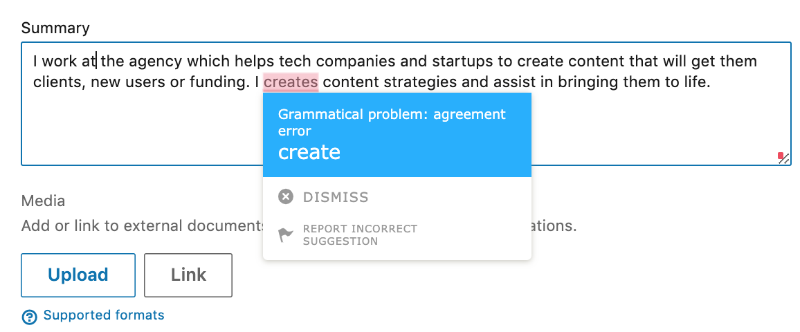Five Mistakes People Make in Preparing for US Labor Immigration
- Transfer

Millions of people from all over the world dream of moving to work in the USA, on Habré there are a lot of articles on how exactly this can be done. The problem is that usually these are success stories, few people talk about possible mistakes. I found an interesting post on this subject and prepared its adapted (and slightly supplemented) translation.
Error # 1. Hope to transfer to the USA from the Russian office of an international company
When you start thinking about moving to America and google the first options, everything seems to be quite a difficult task. Therefore, often the easiest way out may seem to work in an international company with offices in the United States. The logic is clear - if you prove yourself, and then ask for a transfer to a foreign office, why should you refuse? In reality, in most cases, you most likely will not be refused, but the chances of getting to America will not increase much.
Of course, there are examples of successful professional immigration along this path, but in ordinary life, especially if you are a good employee, it will most likely be beneficial for the company to work in your current place as long as possible. This is especially true for people who start from a junior position. Gaining experience and authority within the company will take you so much time that you will feel that you are ready to ask for a move, after many years.
It’s much more efficient anyway to go to work in a well-known international company (for a beautiful line in the resume), actively engage in self-education, communicate with colleagues from different companies, improve their professional level, develop their own projects and look for opportunities for relocation on their own. This way looks more difficult, but in reality it can save you a couple of years of career.
Error # 2. Relying too much on potential employer
The fact that you have become an experienced specialist does not guarantee that you can come to the United States to work. This is understandable, so many also follow the path of (relatively) less resistance and are looking for an employer who could sponsor a visa and relocation. It is important to say that if this plan can be implemented, then everything will be convenient enough for the moving employee - after all, the company pays for everything and does paperwork, but this approach has its own significant disadvantages.
Firstly, the preparation of papers, the cost of lawyers and the payment of state fees are poured for the employer in an amount exceeding $ 10 thousand per employee. At the same time, in the case of the usual American work visa H1B, this does not mean at all that he will be able to quickly begin to bring benefits.
The problem is that working visas are issued several times less annually than they receive applications. For example, for 2019 65 thousand H1B visas were allocated , and about 200 thousand applications were received. It turns out that more than 130 thousand people found an employer who agreed to pay them a salary and become a sponsor for the move, but they were not given a visa because they were not selected in the lottery.
It makes sense to go a little longer and apply for a work visa in the USA yourself. For example, articles on obtaining the O-1 visa were published on Habré. You can get it as an experienced specialist in your field, while there are no quotas or lotteries in this case, you can come and start working immediately. Compare yourself with competitors for jobs that are sitting abroad and waiting for a sponsor, and then will have to go through the lottery - their chances will obviously be less.
There are a number of sites where you can find out more about the different types of visas and get advice on moving, here are a couple of them:
- SB Relocate - a service for ordering consultations, a database with documents and descriptions of various types of visas.
- “ It ’s time to blame ” is a Russian-language platform for searching expats from different countries who can answer all questions related to moving for a certain amount or for free.
Error # 3. Lack of attention to language learning
It is important to understand that since you want to work in an English-speaking country, knowledge of the language will be a prerequisite. Of course, in-demand technical specialists will be able to get a job and not perfectly knowing English, but even a conditional system administrator, not to mention a marketer, will be much more difficult to do this. Moreover, knowledge of the language will be needed already at the very preliminary stage of the job search - compiling a resume.
According to statistics, HR managers and managers responsible for hiring employees spend no more than 7 seconds viewing a resume. After that, they either read into it, or move on to the next candidate. In addition, almost 60% of resumes are rejected due to grammatical errors and typos contained in the text.
To avoid such situations, you need to constantly learn the language, practice, and use auxiliary tools (for example, here is an excellent list of extensions for Chrome to help learners of the language), for example, to search for errors and typos.

For this, programs like Textly.AI (in the screenshot) are suitable
Error # 4. Inadequately Networking
It is clear that there is nothing worse for introverts, but if you want to build a successful career in America, then the more different acquaintances you make, the better. Firstly, the availability of recommendations will be useful, including for obtaining a work visa (the same O-1), so networking will be useful even at home.
Secondly, immediately after moving, the presence of a certain number of local friends will help to save a lot. These people will tell you how to look for an apartment for rent, what to look for when buying a car (for example, in the USA, PTS for a car - aka title - can be of various types that speak a lot about the status of a car - past accidents, twisted mileage, etc. n. - it is unlikely to know all this before moving), the placement of children in kindergartens. The value of such advice can hardly be overestimated; they can save you thousands of dollars, a bunch of nerves and time.
Thirdly, the presence of a “pumped” network of contacts on LinkedIn can be useful directly in employment. If your former colleagues or new acquaintances work in good companies, you can ask them to recommend you for one of the open vacancies. Often, in large organizations (such as Microsoft, Dropbox, and the like), there are internal portals where employees can send resumes of people to HR who they think are suitable for open vacancies. Such applications usually take precedence over just letters from people on the street, so extensive dating will help you get an interview faster.

Discussion on Quora : experts advise, whenever possible, to always submit a resume through contact within the company
Error # 5. Inadequate financial airbag
If you plan to build an international career, then you must understand the risks and possible costs. In the case of an independent visa, you will undertake to pay for the preparation of the petition and state fees. Even if in the end everything is paid by the employer, after moving you will need to find an apartment (with a security deposit), deal with shops, decide if you need a car, and if so, how to buy it, in which garden to arrange children, etc. .d.
In general, there will be many domestic issues; money will be needed to solve them. The more money you have in your bank account, the easier it is to survive this period of turbulence. If every dollar is on the account, then any difficulty and sudden waste (and there will be a lot of them in the new country) will create additional pressure.
In the end, even if in the end you decide to send everything to hell and return to your homeland (a perfectly normal choice), such a trip with a family of four will cost several thousand dollars one way. So the conclusion is simple - if you want more freedom and less pressure, save up money before moving.
